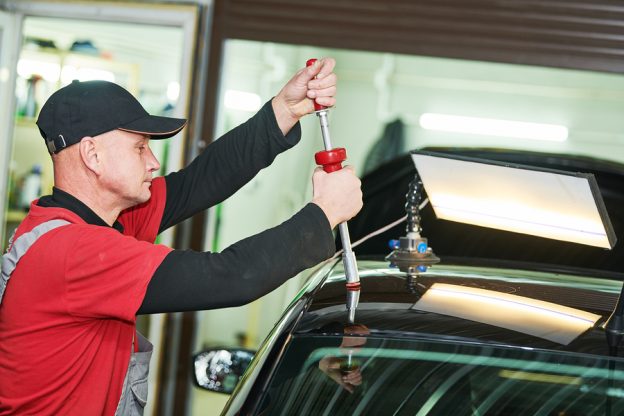
Many members of the National Body Repair Association (NBRA) are missing out on a tax rebate from previous tax years and a tax saving in the future too.
Bodywork specialists or magicians?
As NBRA members, you are responsible for performing what appears to be actual magic on our damaged vehicles. You return them looking and driving like new.
As the only trade association for car body repairers, wise car owners look for businesses with the Approved Code logo. A Chartered Trading Standards Institute stamp of authority, quality and integrity.
The NBRA is great as an industry representative, provides a free conciliation service and helps you get the most up-to-date training by working with other organisations, like the IMI.
It’s not currently showing on HMRC’s professional body list to allow for tax relief on membership fees. Perhaps this is in the pipeline (it was only founded in 2017). In the meantime, there are several other ways that you can save money on your tax bill as an NBRA member.
What other ways can I save money on my tax bill?
HMRC have a whole set of work expenses tax reliefs and allowances that apply to bodywork specialists, auto technicians and every other niche skill set involved in repairing and restoring vehicles.
They apply to all UK taxpayers: part time, full time, PAYE and self employed. The application process may be different depending on your situation, but your right to claim is the same.
Here are some of the most common tax reliefs and allowances that are successfully claimed by your colleagues.
There are two main eligibility criteria that apply to all of them:
- You must have paid the cost yourself
- You are not reimbursed by your employer
Tools, toolboxes and other equipment
From dolly hammers and welders, to goggles and masks, you can claim tax relief on tools and protective clothing you buy for work.
There is the option of a flat rate allowance, based on an annual total of £120 on tools. This is then written into your tax code so that you continue to save this amount. You do not need to provide any evidence for this type of claim. This can be backdated for four tax years, if you’re only just finding out about this now.
If you spend considerably more than £120 per year on tools for work, you will probably be better off making a Capital Allowances claim based on your actual total tools spend. There is no deadline for applying for a capital claims allowance, as long as the tool is still in use and you have the original receipt or activity report, it is eligible. The down side of this is that you do need proof of all purchases to support your claim.
To get a more personalised estimate, put your numbers into our free Mechanics Tools Tax Rebate Calculator to see how much you can save.
Washing work uniform and protective clothing
Mechanics can claim an annual flat rate allowance of £60 to cover laundering your work uniform at home. You are only exempt from this if your employer has washing facilities for your use.
As always, HMRC also has its own specific definition of ‘work uniform’. We check all these little important details before we submit your claim.
Institute of Motor Industry (IMI) membership fee
The IMI have already sorted out tax relief for their members with HMRC. If you pay your won membership fee, you are entitled to include it on your tax rebate claim.
Finance Agreements from tool providers
Another very useful tax relief is for interest payments on finance agreements. Most NBRA members use finance agreements to make the big purchases a bit less painful on the pocket. HMRC need evidence to include the interest on these payments in your claim. The likes of MAC tools can provide copies of your transaction history and finance agreements which can be used as evidence for your claim.
HMRC have a whole range of other tax reliefs and allowances that may also be applicable to your situation.







